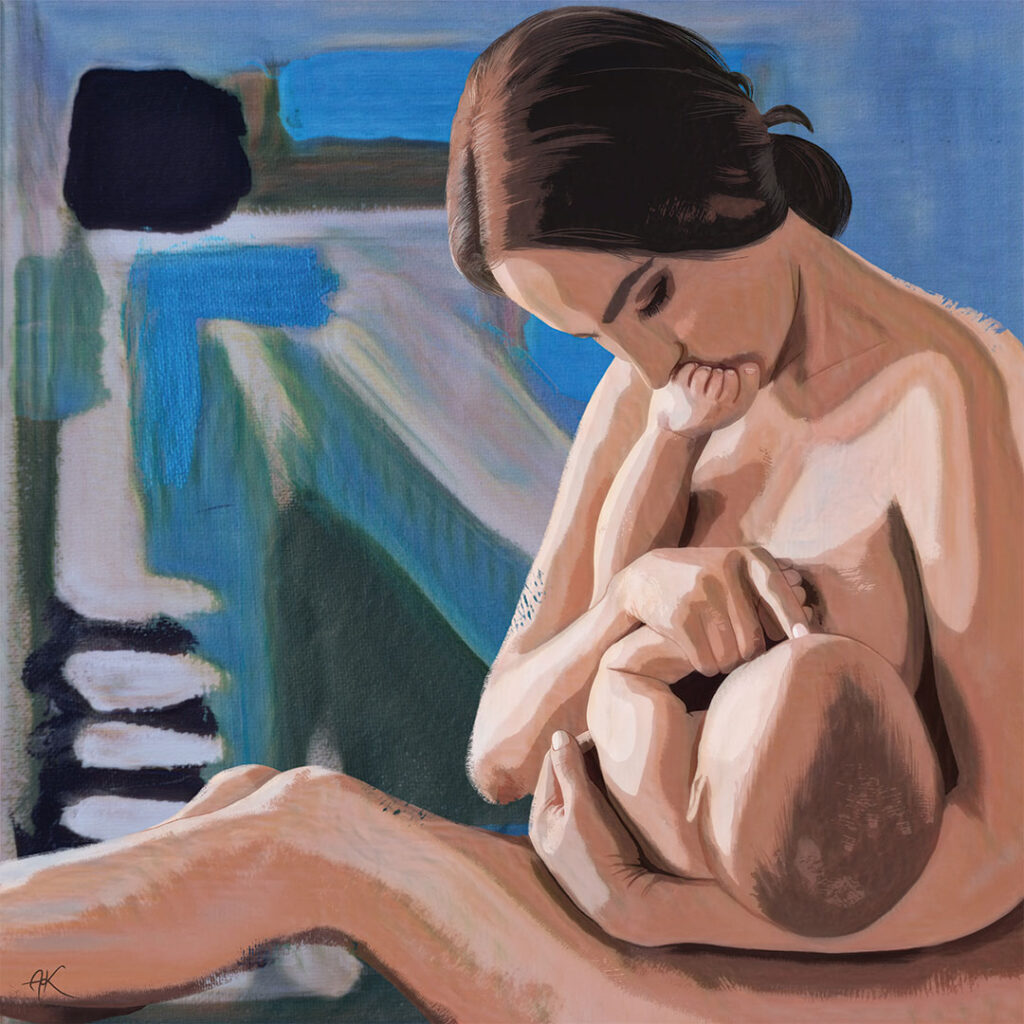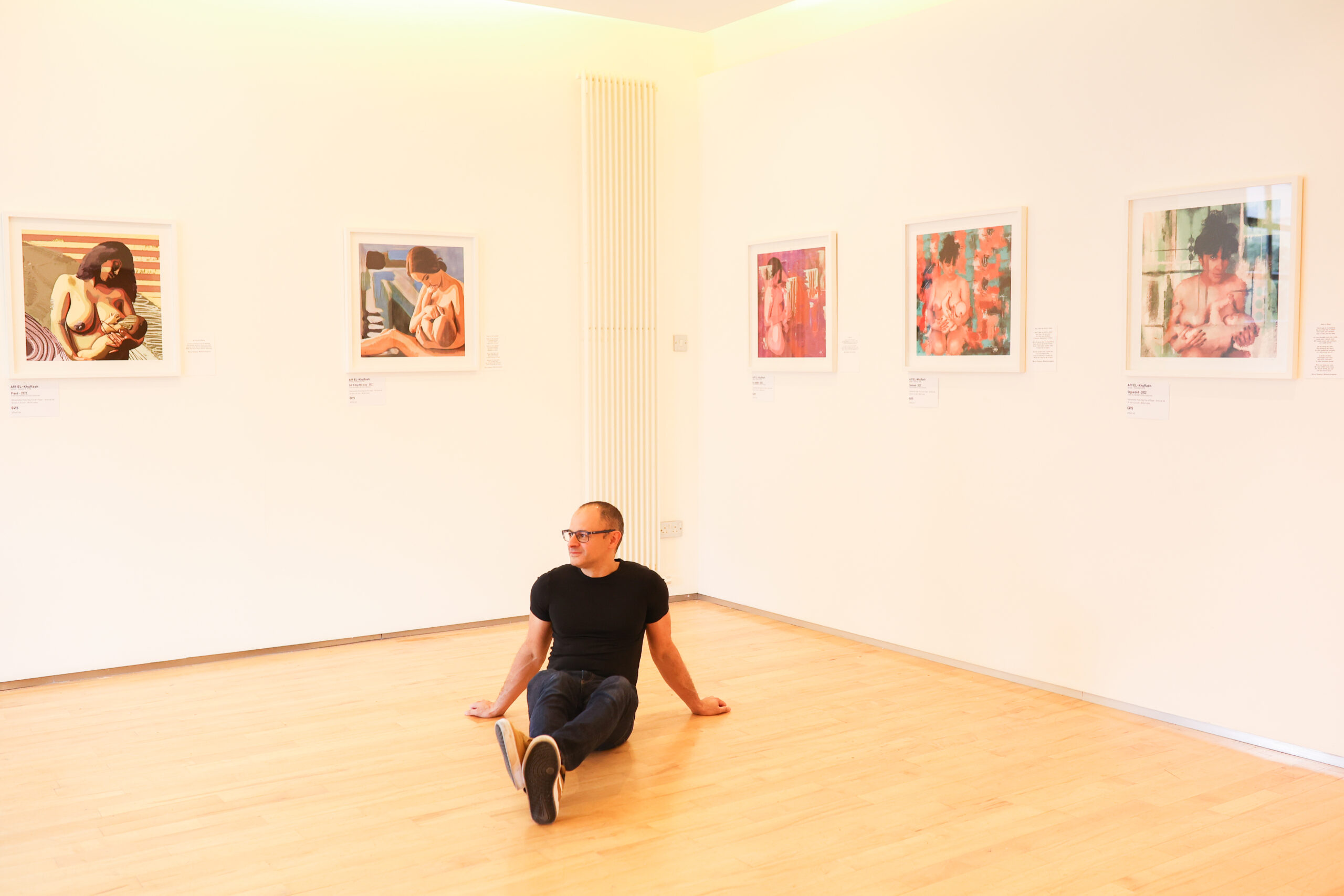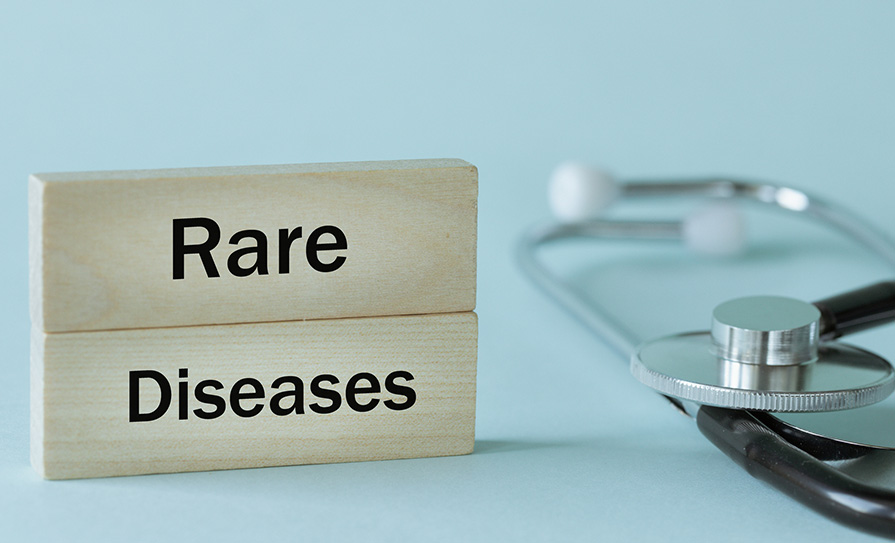A passion for promoting breastfeeding inspired Prof Afif El-Khuffash’s art, which deals with
various subjects, writes David Lynch
Developing a work of art can be like managing a challenging clinical case as both require ‘creativity’. That is the view of Prof Afif El-Khuffash, Consultant Neonatologist at the Rotunda Hospital in Dublin and Clinical Professor of Paediatrics at the RCSI.
Prof El-Khuffash is also an International Board Certified Lactation Consultant and has emerged as a prominent voice in the promotion of breastfeeding in Ireland (see panel).
Alongside his clinical work, he is the co-host of The Baby Tribe podcast with paediatric nurse Ms Katie Mugan. The podcast provides parents and caregivers with the latest information and expert advice on baby health and nutrition.
Also squeezed into this already busy schedule is Prof El-Khuffash’s work as an “emerging professional digital artist”. In recent years his art has generated much interest online and in exhibition.
“I suppose I’ve always had an artistic streak within me, but I always kept it to myself,” Prof El-Khuffash told the Medical Independent (MI).
“I used to do art in my free time, just to kind of de-stress from work and have a bit of a creative outlet.”
Pandemic
Like many people, the onset of the Covid-19 pandemic led to changes in Prof El-Khuffash’s daily routine.
“Interestingly enough, when Covid happened in early 2020, I found myself having a little more time to paint because everything else outside of work just stopped,” he told MI.
“I suppose the thing about Covid was yes, when we were at work, we were very busy and that aspect didn’t stop. But anything outside of work came to a significant halt, so you found yourself using your time differently… so I found time to work a bit more on my art, which I found very rewarding.”
The occasion of national breastfeeding week inspired him to work on a painting of a mother and her child to challenge societal “stigma” and “sexualisation” around breastfeeding
“I put up that painting on Twitter and I got so many messages asking to buy it, and I thought ‘wow, people are actually interested in the art’.”

From the ‘Mother and Child’ series
Prof El-Khuffash “decided then to take it a little further” with a series of abstract paintings of mothers and babies. It developed into ‘The Dyad Collection’ and the ‘Mother and Child’ series.
“It expanded from there and I am really happy that it did, because I learned that I could take my experience in work and some of my passions, such as supporting breastfeeding, and mix it with my art. That aspect of my art seems to be very popular.”
He does not experience any friction between his established identity as a doctor and his emerging identity as a digital artist and his growing artistic work.
“It’s very interesting, especially in my specialty,” he said. “I’m a neonatologist, dealing with premature babies. If you look at the science that revolves around premature baby practice in intensive care, that is still in its infancy, pardon the pun.”
He noted that those working in the specialty are “still learning a lot, how we treat those babies, how to make them better”.
“As a result, there isn’t a lot of evidence behind a lot of the practices that we do, day to day. And that’s where, I think, the artistic part of our job comes through. Because you have heard the expression that ‘medicine is an art’ and that truly applies in a lot of specialties.”
Having previously thought of these two areas of his life as separate, Prof El-Khuffash believes this ‘artistic’ aspect of medicine “complements” his artistic creation.
“The process of creating an art piece from the outset is almost the same thought process as managing a difficult patient case in front of you when you don’t have all the facts to hand,” he said.
“You are pulling from different parts of your brain, putting things on paper and coming up with a conclusion. So I think the two really complement each other.”
Varied
His varied work deploys vibrant colours and the merging of abstract and figurative images. While much of his art is influenced by his clinical experience, there is a range of thematic focuses in his collection, such as his ‘Food’ and ‘Dublin Landmarks’ series.
“So my series of mothers and babies [‘Mother and Child’ and ‘The Dyad Collection’] are obviously inspired by my work,” he said. “But I have food collages as well; I have a Dublin landmark collection. That comes from my love and admiration for other aspects of life.”
Prof El-Khuffash describes himself as a “big foodie” who loves cooking and “really enjoys” the shapes and colours of fruits and vegetables. His Dublin landmark art pieces began with “a whole fascination with lighthouses”.
“I have people tell me, ‘Why don’t you focus on one thing? You seem to be all over the place in terms of what you paint.’ But I suppose the work reflects the different parts of me.”
Many of the mother and baby pieces sell online because Prof El-Khuffash’s social media presence largely revolves around him being a neonatologist and breastfeeding advocate.
But he says at exhibition the public are drawn to his other series covering food and Dublin landmarks.
“Those are the series that really spark the interest of the public [at exhibitions],” according to Prof El-Khuffash. He finds this gratifying “because they like the paintings for what they are rather than associating them with my work”.
Weblinks to Prof El-Khuffash’s work –
Website: www.afifsart.net/
Instagram: www.instagram.com/afif.elkhuffash/
Twitter: @afif_elKhuffash
Building support for breastfeeding
In 2019, UNICEF noted that Ireland’s breastfeeding rates were among the lowest in the world, with only 60 per cent of mothers reporting any breastfeeding at discharge from hospital, including combination feeding.
As part of national breastfeeding week in 2022, the HSE noted a 5 per cent increase in the number of babies breastfed at the first public health nurse visit between 2019 and 2021. The figure rose to 59 per cent.
Prof El-Khuffash told the Medical Independent (MI): “I think at this stage most people know the benefits of breastfeeding… what is really lacking is the support.”
“There is no point advocating for breastfeeding if you are not providing the support. If you look at the Irish data, about 80-to-85 per cent of mothers intend on breastfeeding while they are pregnant with their babies. By the time those 80 per cent or so are [discharged] from the hospital only 40 per cent, less than half, are exclusively breastfeeding.”
This represented a “huge drop-off”, noted Prof El-Khuffash. “In the first two or three days, there is a lot of work that needs to be done in the hospital to promote and support breastfeeding,” he said.
The challenge related to the numbers of staff available to provide this support, added Prof El-Khuffash.
Prof El-Khuffash stated that midwives in Ireland had to manage more patients than their counterparts in other developed health systems.
“We lack the time, we lack the staff, to be able to support mothers. In the community as well, there are issues. Yes, the community supports are improving, but a lot of it is done on a voluntary basis by voluntary organisations,” he said.
MI asked whether the workforce challenge reflected the wider recruitment and retention crisis or if there were particular issues for this area.
“It is partly a bit of both,” he said. “I mean to become a lactation consultant you need to undertake additional training. My journey to become a lactation consultant took about three-to-four years, so it takes time to qualify… but you do not need to be a lactation consultant or have that certificate to be able to provide basic breastfeeding support to mothers; that can come as part of the general training.”
He added: “I think the challenge reflects difficulty in retaining staff in nursing and midwifery across the country… the level of retention of nursing staff is very poor. A lot of nurses are going abroad and who can blame them with better conditions and pay. I think work needs to be done in improving conditions and pay of our nursing and midwifery colleagues.”
In regard to societal attitudes towards breastfeeding, Prof El-Khuffash thinks it is improving.
“But that is not to say it’s [stigma] still not there. You still hear mums being asked to ‘cover up’, to go to the bathroom, to leave the room when they are breastfeeding. You still hear those stories happening in Ireland from time to time, so there is still some lingering stigma about breastfeeding imagery and breastfeeding in public.”
When it comes to public health messaging around breastfeeding, Prof El-Khuffash believes the health system “needs to try and find a balance”.
“I think advocating for breastfeeding without having adequate support that’s where you can alienate people.”













Leave a Reply
You must be logged in to post a comment.